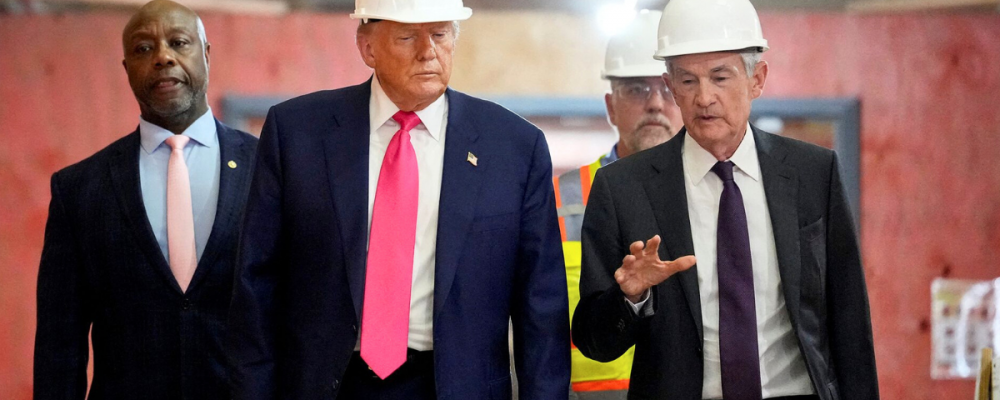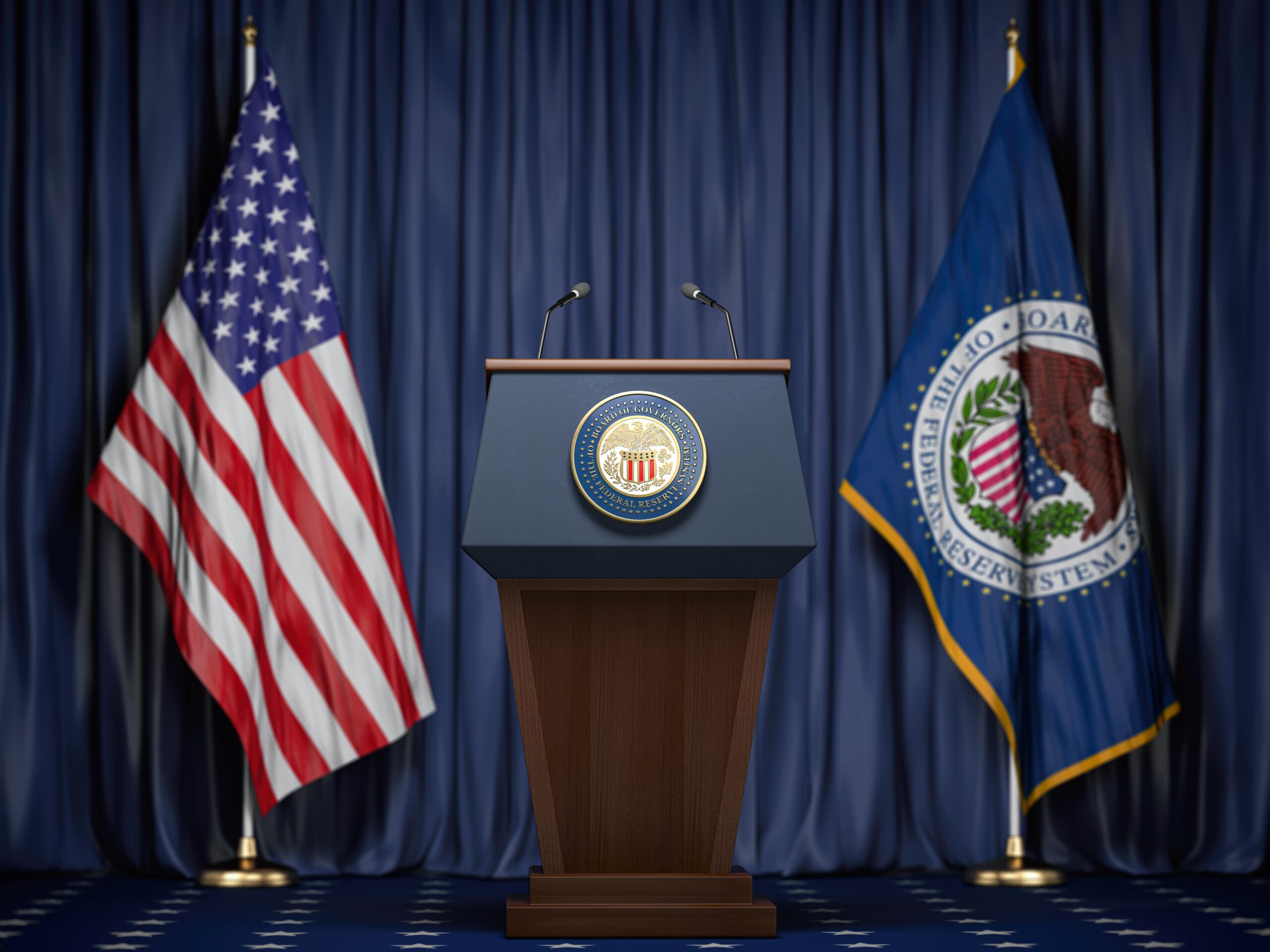
The information provided is based on the published date.
Key takeaways
- President Trump's list of potential Fed Chair nominees includes former Fed officials like Kevin Warsh and James Bullard, current governor Christopher Waller, and past White House economic advisors Kevin Hassett and Marc Sumerlin.
- The candidates represent a range of monetary policy views, from traditionally hawkish stances focused on inflation to more dovish perspectives concerned with economic growth and the job market.
- Each potential nominee has a history of navigating economic policy within Republican administrations or at the Federal Reserve, signaling a likely shift in the central bank's leadership style.
- For investors, the ultimate choice for Fed Chair will have significant implications for future interest rate decisions, market volatility, and the U.S. economic outlook for 2026 and beyond.
We appear to be getting closer to President Donald Trump making a decision on who he will nominate to be the next Chair of the Federal Reserve. Current Chair Jerome Powell’s term ends in May of 2026, but Trump has said he wants to nominate a replacement “soon.” Recent reporting suggests the search is down to between five and eight candidates. This decision will undoubtedly be hugely impactful for investment markets. This gives us an opportunity to dive into each possible future Fed leader, including who they are and how they might shape the Fed. We’ll also talk about what this could mean for the Fed’s independence over the longer-term.
The most likely candidates
Let’s start with the three candidates that are generally viewed as having the best chance at the nomination.
Christopher Waller
As of the time we’re writing this, Waller is the betting market favorite to get the nomination. His odds shot up when Bloomberg reported that Waller has emerged as a favorite of at least some White House advisors.
Waller is currently a member of the Federal Reserve Board of Governors, a position he has held since being appointed by President Trump in 2020. He is a respected monetary economist who previously served as the Executive Vice President and Director of Research at the Federal Reserve Bank of St. Louis. He would be a very traditional choice for a Fed Chair.
He recently gained some notoriety for stridently advocating for rate cuts, even going so far as to vote against the consensus when the Fed did not cut rates in July. While this probably endeared him to the White House, Waller has not been consistently dovish. At times during the 2022-2023 period, Waller was one of the stronger voices advocating for more aggressive rate hikes. Waller has also been clear that he views the Fed’s independence as critical. In recent interviews he’s stressed the importance of the Fed’s credibility with markets.
Waller would probably be Wall Street’s favorite pick of this group. On the margins, he might be willing to cut rates somewhat more aggressively than Powell, but overall Waller would likely operate the Fed similarly to his predecessor. This is the kind continuity and predictability that markets tend to prefer. If Trump wants someone who will clearly be accepted by markets, Waller would be the pick.
Kevin Hassett
Hassett is currently the Director of the National Economic Council under President Trump. During Trump’s first term, Hassett served as the Chairman of the Council of Economic Advisers and later as a Senior Advisor to the President. He has been hanging around Republican politics for a long time, having been an advisor to John McCain, George W. Bush, and Mitt Romney.
Hassett is a serious economist from a traditional background. However, his economic views have been somewhat fluid depending on the administration and/or candidate he has served. This isn’t unusual for someone who has followed his career path. Part of his job is to produce economic data that supports the positions of the candidate that is employing him. I might argue that he’s been more a political advisor on economic matters rather than purely an economic advisor. This would make him a bit more partisan than recent Fed Chair selections. That being said, Hassett has recently said that the independence of the Fed is “super important” even while criticising Powell’s policies.
Wall Street would not mind Hassett getting the job, but there would be some concerns. If Hassett appeared to be cutting rates too aggressively, it could cause markets to price in future inflation. That would probably cause longer-term interest rates to rise and the dollar to decline. That being said, Trump has known Hassett a long time. If Trump makes this pick based on loyalty, Hassett would probably be the selection.
Kevin Warsh
Kevin Warsh served as a member of the Federal Reserve Board of Governors from 2006 to 2011, playing a key role during the global financial crisis. Prior to the Fed, he worked in the White House as a special assistant for economic policy to President George W. Bush and began his career in mergers and acquisitions at Morgan Stanley.
Warsh has generally been an advocate of higher interest rates in the past. He had advocated for rate hikes in early 2008 while still at the Fed. He also warned the Fed needed to “rush into rate hikes” in 2015 to avert an impending financial crisis. Both of those periods had lower inflation and higher unemployment than we have today. Yet now Warsh has changed his tune, calling for rates to go lower.
Whether this is a genuine U-turn in Warsh’s thinking or just an audition for the job, Warsh’s past hawkishness may give President Trump pause. Trump recently said in an interview discussing potential who he might pick for the Fed “You have people that you think are good and then they get in there and they're not so good.” That could easily be directed at Kevin Warsh. Trump might worry that Warsh is saying what Trump wants to hear, but won’t stick to keeping interest rates low. I think all this makes Warsh a less likely choice.
The long shots
There are two other candidates that are supposedly on Trump’s list, but have gotten less attention from the media. This probably makes them less likely to get the nomination, but I wouldn’t rule them out completely. After all, before Powell himself was nominated, there hadn’t been a lot of media buzz around him either.
James Bullard
Bullard was the long-serving president and CEO of the Federal Reserve Bank of St. Louis from 2008 until 2023. He brings the gravitas of a Fed insider and respected monetary economist, which Wall Street would appreciate. He also has a history of advocating for lower interest rates to spur faster growth. He voted for rate cuts in early 2019, and the rest of the committee ultimately came around to his point of view.
Right now it appears Bullard is a long-shot candidate for Fed Chair, but investment markets would likely view Bullard more favorably than Warsh, and probably Hassett too.
Marc Sumerlin
Marc Sumerlin is an economic consultant who served as Deputy Assistant to the President for Economic Policy and Deputy Director of the National Economic Council under President George W. Bush. In that role, he was a key figure in developing major tax and economic policies, including the response to 9/11.
Sumerlin has a somewhat lower public profile compared to most of the other candidates, and had no involvement in the first Trump administration. However, he was approached in 2019 by the Trump team about joining the Fed board. According to reporting, he turned down the opportunity because he didn’t want to be nominated alongside Judy Shelton.
Based on Sumerlin’s published writings, he seems to have mainstream economic views. But his lack of a background with the Fed would make him a bit of a non-traditional candidate. It may be that Trump’s team is considering Sumerlin for a seat on the board, as opposed to the Chair role.
Other rumored candidates
Bloomberg News reported that Treasury Secretary Scott Bessent will also be interviewing three other candidates for the Fed Chair:
- Philip Jefferson, current Vice Chair of the Federal Reserve, meaning he is functionally the #2 at the Fed.
- Michelle Bowman, currently Vice Chair for Supervision, which means she is in charge of bank regulation.
- Laurie Logan, current President of the Dallas Fed.
I don’t think any of these are likely to wind up as Chair. Jefferson was a Joe Biden appointee, which would seem to clash with Trump’s preferences. Bowman is a banking lawyer, not an economist. Logan is a life-long Fed employee, spending most of her career in the markets group at the New York Fed. I don’t think Trump will view her as the kind of change agent he’s looking for. It is possible Bessent is just interviewing this group to gain intel on the other candidates and/or how the Fed is operating right now.
Trump could certainly still consider new candidates as well, including potentially some less traditional candidates. One consideration will be whether these candidates can get confirmed by the Senate. During Trump’s first term, he had several Fed board appointees fail to get confirmed. Given the urgency with which Trump wants Powell replaced, the speed of Senate confirmation is probably an important consideration.
What about the Fed’s independence?
Economists overwhelmingly agree that the Fed needs to make interest rate decisions independently of the White House or Congress. It is generally believed that in the 1970s, then Fed Chair Arthur Burns caved to political pressure from the Nixon White House and kept interest rates low. This may have been a major factor in the high inflation rates during that period.
It is fair to say that President Trump has been more overtly critical of the Fed than any president since Nixon. Hence there is reason to be concerned that Fed independence could start to erode. Indeed, Trump recently nominated Stephan Miran to an open seat of the Fed’s board. Miran has been a critic of Fed independence, arguing that elected officials should have more oversight and influence over the Fed.
I do have concerns about Fed independence. That being said, I do not want to exaggerate those concerns. Scott Bessent, who is leading the search for the new Fed Chair, has stated his support for Fed independence even when criticizing the Fed. Even the more partisan of the candidates being considered, such as Kevin Hassett, have also emphasized that the Fed needs to be independent. Even Miran, who would certainly be the most partisan member of the Fed committee where he is to be confirmed, is just one voice of many. He wouldn’t have any special ability to influence monetary policy.
That being said, Wall Street will be watching this process carefully. If traders believe the new Fed Chair will be cutting rates too aggressively, we’d be likely to see the dollar decline and longer-term interest rates rise, as investors start to anticipate higher inflation in the future. This will have to be a consideration for the Trump team. Trump wants lower interest rates to spur the economy and make home mortgages more affordable. But higher future inflation will cause mortgage rates to rise and potentially damage the economy. The wrong kind of candidate for the Fed Chair could be counterproductive for Trump.



